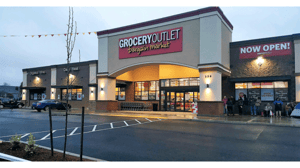Toilet Paper 2.0: Retailers Limiting Purchases of MeatToilet Paper 2.0: Retailers Limiting Purchases of Meat
Consumer concern over supply issues lead to precautionary limits at the meat case. The meat supply is being tested by COVID-19, and retailers are responding by limiting sales to keep product in the case.

Last week’s invocation of the Defense Production Act to keep U.S. meat plants open brought the meat supply situation into vivid relief for consumers and prompted a swift response from retailers. President Donald Trump's order was precipitated by meat processing facilities closing due to COVID-19 outbreaks in the several weeks preceding.
With consumer attention focused on the meat supply, retailers have begun to limit the amount of meat customers can buy at one time in an attempt to curb panic buying and avoid taxing the supply chain with another toilet paper situation. This concern may be well-founded as meat sales have been elevated since the pandemic began, with shut-in consumers sending sales up by 17% over last year for the week ending April 19, the seventh week of the crisis.
Retailer Response
“In recent days, our supermarkets have experienced increased guest demand for products in our meat department,” Giant Eagle said in a statement. “To discourage bulk purchasing and ensure that we have product available for as many guests as possible, we are temporarily limiting the number of ground beef and advertised meat products guests can purchase at once. In a single transaction, guests are able to purchase two packages of ground beef and up to two of each meat item advertised in our weekly circular.”
The statement went on to say that limits were not an issue of lack of product in the supply chain but rather based on increased demand at the store level and the retailer sourced product from several suppliers, which would enable ample supply.
Fresh Thyme on April 27 began limiting customers to purchasing only two packages of any one type of meat product. Kroger announced on May 1 that it was limiting the purchases of ground beef and fresh pork in some its locations, although it did not specify which banners or markets were to be affected. Although a local news report indicated that its banners Ralphs and Food 4 Less are limiting purchases. “At Ralphs and Food 4 Less, we feel good about our ability to maintain a broad assortment of meat and seafood for our customers because we purchase protein from a diverse network of suppliers. There is plenty of protein in the supply chain; however, some processors are experiencing challenges,” a Ralph’s spokesperson said in the news report.
At Costco, fresh meat purchases are temporarily limited to a total of three items per member of beef, pork and poultry products.
Albertsons has instituted two packages of beef, chicken and pork per household (for a total of six meat products per order) in its Southern California stores. “We are not experiencing and do not anticipate any issues with supply or product availability. We did so to prevent panic buying and to ensure more of our customers can find the products they need,” a spokesperson said in a local news report.
H-E-B also is limiting purchases, but the rules are different depending on the store’s location. Fresh beef, ground beef, chicken, pork and turkey is limited to five packages in total for stores in in the San Antonio area, central Texas, Gulf Coast, Border region, and certain West and North Texas towns. In Houston and Abilene, Big Spring, Burleson, Cleburne, Granbury, Hudson Oaks, Midland, Odessa, San Angelo and Waxahachie stores, the limit is four packages of ground beef, four packages of chicken and two briskets. The company’s Central Market banner currently does not have any limits placed on meat purchases.
Independent Grocers Plan Ahead
For independent grocers, such as Barons Market in San Diego and DeCicco’s in Westchester County, N.Y., supply also hasn’t been an issue. DeCicco’s sells only antibiotic-free meat, which is not a commodity-based product and the processing facilities that produce it have not had any shutdowns, said John DeCicco Jr., CEO of DeCicco’s. “We are trying to stay three to four weeks ahead on ordering so that if an issue does arise, we should be protected for the time it takes to close a plant and reopen,” he said.
At Barons Market, SVP Rachel Shemirani noted that meat shipments have been steady and consistent. She has instructed store managers at the eight locations to only implement purchasing limits if they begin to see surge buying. “In the meantime, however, we’ve placed orders for backup product for our warehouse freezers so we’re prepared in the event that the meat supply becomes limited,” she said.
The pain may not be over soon for the meat supply chain. Tyson warned on May 4 that it expects more closures for the rest of the year, and it will continue to process less meat than in the past. “We have and expect to continue to face slowdowns and temporary idling of production facilities from team member shortages or choices we make to ensure operational safety,” the company said in a statement discussing financial results from the first three months of this year.
“We will not hesitate to idle any plant for deep cleaning when the need arises,” CEO Noel White added during an analyst call on May 4.
Meat companies have made some adjustments in the pandemic, such as installing infrared temperature scanners and shields between workers, but workers continued to be stricken with COVID-19 and plants began to shut down.
Tyson announced that as some of facilities begin to reopen, it has partnered with Matrix Medical Network to help ensure the safety and health of their team members and contractors. Matrix will test workers for COVID-19, provide on-site medical care in a mobile health clinic and help design new safety measures to halt the spread of coronavirus.
About the Author
You May Also Like






